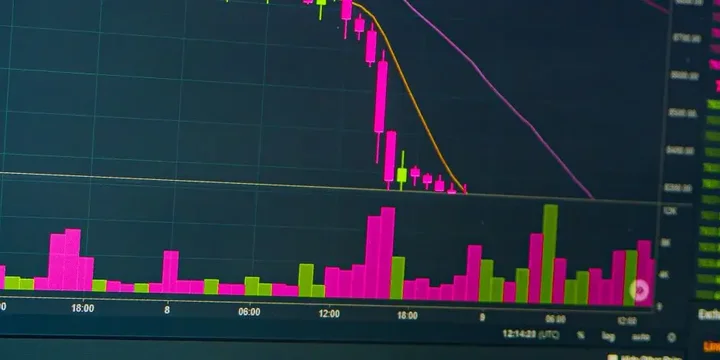Unlock the World of Forex Proprietary Trading

In recent years, the popularity of forex prop trading has grown exponentially.
As a result, many funded forex prop firms popped up, which allow traders to access capital and risk management systems.
For beginner traders, understanding the different types of proprietary trading firms is essential for success in the industry.
In this article, we will discuss what these firms are, where they fit in the industry and their advantages and disadvantages.
What is Forex Prop Trading?
Forex prop trading, or proprietary trading, is a type of online Forex trading that has become increasingly popular in the Forex industry.
It involves private organizations working with Forex traders to provide funds for them after they have gone through a series of demo trials (usually two phases).
The profits are then shared between the trader and the prop firm at an agreed ratio or percentage.
History of the term “prop trading”
The term “prop trading” is short for “proprietary trading.”
Prop trading is a type of trading that occurs when a firm uses its own capital to trade, rather than clients’ money.
The origins of the term are unclear, but it is likely that it comes from the fact that firms that engage in prop trading are taking on more risk than firms that don’t.
Evolution of prop trading over time
Prop trading has evolved significantly over time.
In the early days of prop trading, firms would often use their own money to make bets on things like commodities or currencies.
Nowadays, prop trading is often done with complex financial instruments like derivatives.
Prop traders also use sophisticated software and data to make their trades.
Despite the changes in prop trading over time, one thing has remained constant: it is still a risky business.
Prop traders are often compared to gamblers, because they are taking on a lot of risk in hopes of making a big profit.
So, why do firms continue to engage in prop trading?
For one thing, it can be very profitable.
Prop traders often make a lot of money for their firms.
They also add excitement and drama to the financial markets.
Prop trading is not for everyone, but it has been around for many years and is likely to continue to be a part of the financial landscape for years to come.
Traditional Proprietary Firms
Traditional proprietary firms are companies that align their interests with those of their traders.
These firms generally pay a base salary and bonus out traders at their discretion (based on performance).
The traditional prop firm typically requires its traders to work on a trade desk or trade floor in major financial centers around the world.
Entry into these firms is often difficult as they only hire fresh graduates from top schools or established institutional traders.
Examples of traditional prop firms include Jump, First New York Securities, Wolverine Trading and Optiver.
The main source of revenue for these companies comes from trading operations and profits.
Depository Proprietary Firms / First Loss Broker-Dealers
Depository proprietary firms are those where the trader’s interests are less aligned with those of the firm than with traditional prop firms.
Traders do not receive a base salary but instead put up a risk deposit; should they lose money, they lose their own money first before any losses affect the firm’s balance sheet.
As such, payout percentages for these firms tend to be higher than elsewhere (70%-95%).
Examples include T3 Trading, Bright Trading and WTS.
Depository prop firms make most of their revenue from marking up transaction fees and charging for training courses; however, many traders still opt for this type of firm due to access to institutional grade markets (DMA) as well as professional software/platforms.
Scouting Firms
Scouting programs have become increasingly popular amongst retail forex traders who are just starting out in the industry because it allows them to access capital without having to put up any risk capital themselves.
Instead, they simply pay an evaluation fee which gives them access to the same opportunity as anyone else – provided they pass evaluation tests which demonstrate proficiency at managing risk and making consistent trades in markets.
Scouting programs tend to focus on tools/software commonly found at retail brokerages rather than those used by institutional investors.
Furthermore, some scouting programs also offer guidance/training/mentorship once candidates have passed evaluation tests – services which can be particularly attractive to novice traders just starting out in forex trading
About The Author

Edward is a seasoned forex trader with 13 years of experience, transitioning from retail to prop trading with success at FTMO. He is a top performer and accomplished educator, teaching courses on forex prop trading. In his free time, Edward enjoys playing guitar and hiking. He is a contributor to PipsGeek and passionate about helping others succeed in forex trading.







